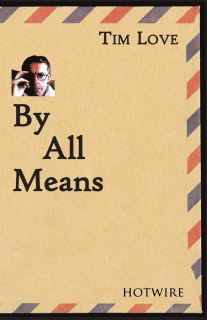Reading the 46 bios in the most recent "Rialto" you'll find about 6 people admitting to non-creative-writing professions - there's a nurse, an editor/translator, a journalist, a dog-whisperer, a Jungian analyst and an RSPB worker. Maybe several others have non-creative-writing professions, but are too shy to admit to them. Some who don't mention their profession (Carrie Etter for example) are creative writing academics. Academics or not, many aren't shy of mentioning their creative writing degrees.
The 57 bios in the latest "Interpreters House" have more variety, the non-creative-writing professions mentioned being artist, acupuncturist, funeral director, librarian, museum advisor, EFL teacher, psychology prof, graphics/web designer - though there are many creative writing qualifications listed as well.
Where are the doctors and lawyers? Where are the bishops, butchers and bakers?
In The Professionalization of Poetry, David Alpaugh wrote "today practically every highly acclaimed poet in America is teaching in a college or university writing program". That was in 2003. He continued "We nonprofessionals need to speak up and make our presence known". My standard bio for UK mags currently reads
| Tim Love lives in Cambridge. He's had prose and poetry published in "Stand", "Rialto", "Oxford Poetry", "short Fiction", etc. His publications are "Moving Parts" (HappenStance, 2010) and "By All Means" (Nine Arches Press, 2012). He blogs at http://litrefs.blogspot.com |
which doesn't help. So I think in future I'll mention that I teach programming at Cambridge University. I could mention that I've taught an astronaut, gold medalists (rowing) and even a "Great British Bake Off" runner-up, but that would be showing off.
David Alpaugh went on to write "We need to remind professionals that the ad-hoc, personalized, dare I say amateur writing process they are striving to replace has produced practically all of the great poetry in the world for over 2500 years! We need to let them know that we expect poetry to continue to be published and honored on the basis of its quality rather than on the professional status or nonstatus of the poet. When you open a literary journal and see what you think is downright prose parading as poetry, write a letter to the editor and ask what it is doing there. When you see poems full of shoptalk, insider references, poetic name-dropping and credential-showing, complain - or, better yet, cancel your subscription.". Well maybe, but one thing at a time. For now, I'll just fix my bio.
 My story collection "By All Means" (ISBN 978-0-9570984-9-7), published by Nine Arches Press, is on sale from
My story collection "By All Means" (ISBN 978-0-9570984-9-7), published by Nine Arches Press, is on sale from  My poetry pamphlet "Moving Parts" (ISBN 978-1-905939-59-6) is out now, on sale at the
My poetry pamphlet "Moving Parts" (ISBN 978-1-905939-59-6) is out now, on sale at the 